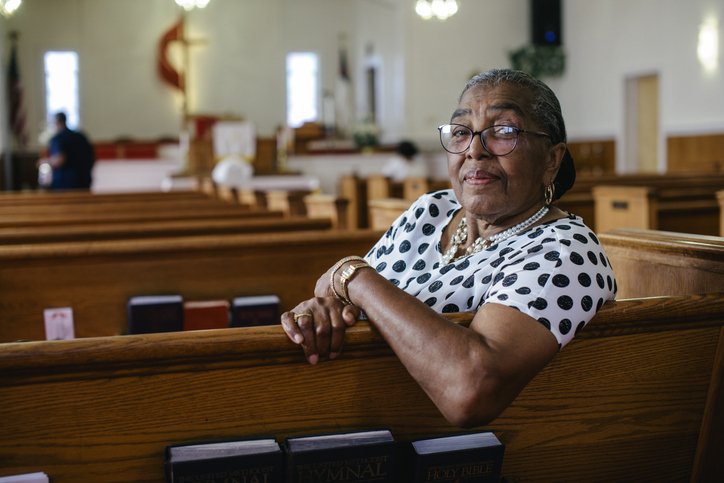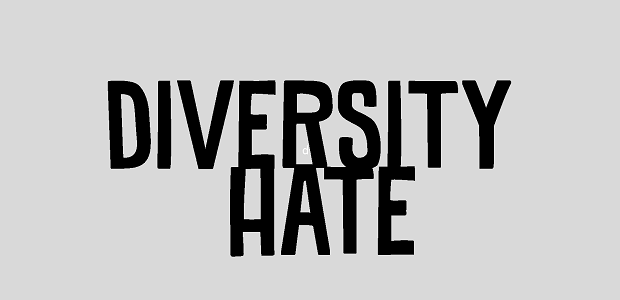
We’ve come this far by faith. This refrain is from a standard sung by Black choirs and congregations all over. And it’s true. Our faith — in God, in the church, in each other — has carried us through hundreds of years of physical, economic, and psychological oppression. And religion, specifically Christianity, has been the bedrock of many of our worldviews. The stories about emancipation, healing, forgiveness, and a heaven that rewards our long-suffering have given Black folks in this country something steady to grab onto in the most difficult of times.
The Black church has served as a center for education, organizing, grieving, support, and celebration. When Black men couldn’t find the respect and career growth they longed for in corporate America, the church provided opportunities. The most respected vocalists and musicians of our time honed their skills in the church. And no political campaign is complete without a Sunday morning service at a major Black church. I learned so many important foundational principles in the church. We were taught the importance of giving, respect, love, and honoring scholarship. We built lifelong friendships, practiced our oratory skills, and learned Black history. There was music, dancing, food, and trips. It was an ecosystem all its own, where I felt and saw love constantly. From the womb to the tomb, many of our lives have been anchored in the church.
At the same time, it has produced and perpetuated some of our most harmful beliefs: homophobia, classism, and fatphobia were all commonplace. And of course, there was the threat of hell. I never stopped worrying about going to hell. And because the rapture was considered to be imminent, I worried about being left behind by my family and church members. For many Christians, the rapture is an apocalyptic event in which all believers, dead and alive, will ascend into heaven simultaneously. We were told that we were living in the last days, and that we needed to get right with God or risk being left on earth to experience various trials and tribulations (yes, I also read the Left Behind series). I considered how shameful it would be if everyone I knew got to heaven and didn’t see me. I was afraid of the prospect of eternal damnation. At my church, we were told we would most likely not see adulthood because the rapture would be any day. I waited for the big day, doing what was expected of me well into my 20s. I would not be left behind.
As I entered adulthood and saw that, in fact, Jesus had not cracked the sky and raptured us, I realized that I needed to learn to actually live on earth, instead of being so focused on the afterlife or heaven. I learned that rapture theology had only been around since the 1830s. I also saw how my beliefs were not aligned with the work I was doing in DEI. I couldn’t talk about oppression in one area and not acknowledge other kinds of oppression or intersectionality. I had to let go of some beliefs. I had to get in right relationship with myself, as well as the people Christians had been sending to hell. Harmful beliefs I had to deconstruct include:
- Homophobia/transphobia
- Prosperity gospel (belief that we will be financially blessed if we have faith, work hard, and give money to the church)
- Embodiment of sin (belief that we all humans are totally inherently depraved)
- Bodily shame/modesty (believing that what I wore or the shape of my body is the cause for men’s sin)
- Dating exclusively for the purpose of marriage
- Demonization of other religions and spiritual practices
- Misogyny
- Classism
- Ableism (there is a huge focus on faith healing, as opposed to acceptance and accessibility)
As I approach 39, I sit with a lot of tension. I don’t have the assurances that I once had. I have had to have a lot of hard conversations with people that I love dearly, and relationships have definitely changed. But that is fine. It’s okay to struggle with new belief systems. Everything won’t be perfectly reconciled, and tension is normal. There are always unknowns, and we should always remain curious and critical.
Today, I feel at peace with what I am doing in this life, and I’m less concerned about the next. I’m grateful for writers like Candice Marie Benbow and Danté Stewart who have written so eloquently about their own deconstruction processes. While being spiritually adrift may seem scary, you can still find and cultivate community. The community you find will feel different. They may not know or practice the same traditions. But having people who share your values and center the oppressed will offer you something you need now in the form of alignment.


















